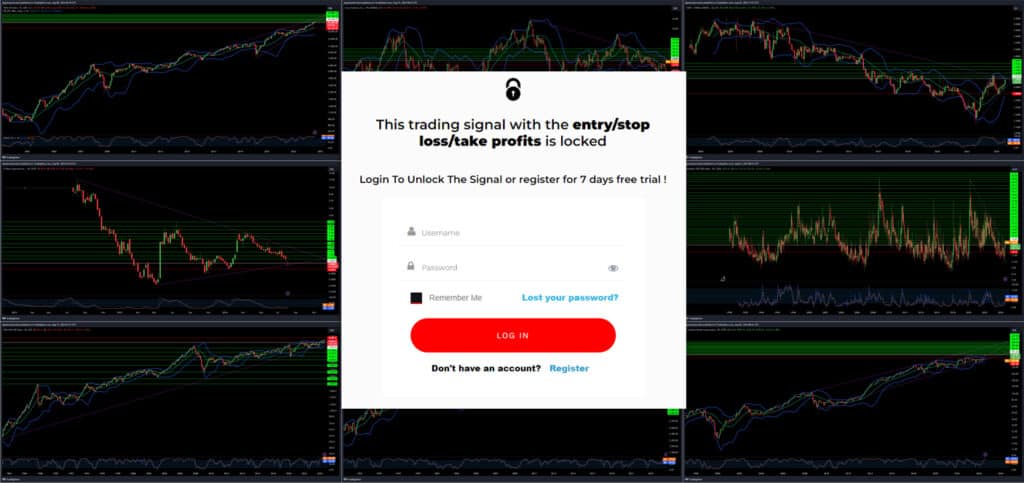Trading signals are alerts or recommendations that help traders identify potential buying or selling opportunities in financial markets like stocks, forex, or commodities. These signals are based on various types of analysis—technical, fundamental, or a combination—and are designed to aid traders in making informed decisions. Whether generated manually by analysts or automatically through algorithms, trading signals offer actionable insights to help traders navigate volatile markets.
For those looking to enhance their trading, platforms like Signalmastermind.com provide highly successful signals that have helped many traders achieve consistent results. In this article, we’ll explore the basics of trading signals, their different types, and how they work, offering a solid foundation for anyone interested in leveraging them in their trading strategies.
Types of Trading Signals
Trading signals come in different forms depending on the analysis method used to generate them. The most common types include:
- Technical Analysis Signals: These are derived from price charts, historical data, and indicators such as moving averages, RSI (Relative Strength Index), and MACD (Moving Average Convergence Divergence). For example, a moving average crossover might signal a potential shift in trend direction.
- Fundamental Analysis Signals: These are based on economic events, news, and financial data. Major announcements such as interest rate changes, earnings reports, or geopolitical events can trigger these signals.
- Sentiment-Based Signals: These signals are driven by market sentiment and crowd psychology, often derived from social media, news, or sentiment indicators. If the majority of traders are bearish or bullish, this might indicate a market shift.
- Algorithmic or Automated Signals: These are produced by software systems that automatically generate signals based on predefined criteria. Algorithmic trading systems, like those at Signalmastermind.com, use advanced algorithms to deliver high-accuracy signals.
How Trading Signals Work
Trading signals typically include key information such as:
- Entry Point: When to enter a trade.
- Exit Point: When to close the trade (either for profit or loss).
- Direction: Whether to go long (buy) or short (sell).
- Timeframe: How long the signal is expected to remain valid.
For example, a signal might suggest: “Buy GBP/USD at 1.3000, take profit at 1.3100, stop loss at 1.2950.” This provides clear instructions for the trade.
Sources of Trading Signals
Trading signals can come from various sources:
- Signal Providers: Platforms like Signalmastermind.com specialize in generating highly successful signals for traders. These signals are based on thorough analysis and back-testing, giving traders a high probability of success.
- Social Trading: Some platforms allow traders to copy or follow signals provided by experienced traders.
- Custom Indicators: Many platforms offer the ability to create custom indicators that generate personalized signals based on a trader’s unique strategy.
Why Traders Use Trading Signals
Trading signals offer several advantages, particularly for those who are new to trading or don’t have the time to conduct deep analysis. They provide:
- Time Efficiency: Signals save traders time by offering actionable insights.
- Support for Beginners: New traders can rely on signals to help them make smarter decisions while they build experience.
- Consistency: Using structured signals helps reduce emotional trading decisions, leading to more consistent results.
With services like Signalmastermind.com, traders can access signals that have a proven track record of success, helping them maximize their profits and minimize risk.
Risks Associated with Trading Signals
While trading signals offer valuable insights, there are inherent risks:
- Accuracy: Not all signals are 100% accurate, and following poorly timed signals can lead to losses.
- Over-Reliance: Depending too much on signals without understanding the market can expose traders to risk, especially during volatile periods.
- Market Conditions: Signals that work in trending markets may not be effective in range-bound or highly volatile environments.
Conclusion: Leveraging Trading Signals for Success
Trading signals are a powerful tool that can help traders make informed decisions and improve their success rates in the market. With reliable sources like Signalmastermind.com, which provides highly successful signals, traders have the opportunity to navigate markets with confidence and precision. However, it is essential to combine these signals with sound risk management practices and personal analysis to achieve the best results.
Whether you are a beginner or an experienced trader, utilizing trading signals can enhance your strategy, improve your timing, and increase your chances of making profitable trades.
Disclaimer
All information on this website is of a general nature. The information is not adapted to conditions that are specific to your person or entity. The information provided can not be considered as personal, professional or legal advice or investment advice to the user.
This website and all information is intended for educational purposes only and does not give financial advice. Signal Mastermind Signals is not a service to provide legal and financial advice; any information provided here is only the personal opinion of the author (not advice or financial advice in any sense, and in the sense of any act, ordinance or law of any country) and must not be used for financial activities. Signal Mastermind Signals does not offer, operate or provide financial, brokerage, commercial or investment services and is not a financial advisor. Rather, Signal Mastermind Signals is an educational site and a platform for exchanging Forex information. Whenever information is disclosed, whether express or implied, about profit or revenue, it is not a guarantee. No method or trading system ensures that it will generate a profit, so always remember that trade can lead to a loss. Trading responsibility, whether resulting in profits or losses, is yours and you must agree not to hold Signal Mastermind Signals or other information providers that are responsible in any way whatsoever. The use of the system means that the user accepts Disclaimer and Terms of Use.
Signal Mastermind Signals is not represented as a registered investment consultant or brokerage dealer nor offers to buy or sell any of the financial instruments mentioned in the service offered.
While Signal Mastermind Signals believes that the content provided is accurate, there are no explicit or implied warranties of accuracy. The information provided is believed to be reliable; Signal Mastermind Signals does not guarantee the accuracy or completeness of the information provided. Third parties refer to Signal Mastermind Signals to provide technology and information if a third party fails, and then there is a risk that the information may be delayed or not delivered at all.
All information and comments contained on this website, including but not limited to, opinions, analyzes, news, prices, research, and general, do not constitute investment advice or an invitation to buy or sell any type of instrument. Signal Mastermind Signals assumes no responsibility for any loss or damage that may result, directly or indirectly, from the use or dependence on such information.
All information contained on this web site is a personal opinion or belief of the author. None of these data is a recommendation or financial advice in any sense, also within the meaning of any commercial act or law. Writers, publishers and affiliates of Signal Mastermind Signals are not responsible for your trading in any way.
The information and opinions contained in the site are provided for information only and for educational reasons, should never be considered as direct or indirect advice to open a trading account and / or invest money in Forex trading with any Forex company . Signal Mastermind Signals assumes no responsibility for any decisions taken by the user to create a merchant account with any of the brokers listed on this website. Anyone who decides to set up a trading account or use the services, free of charge or paid, to any of the Broker companies mentioned on this website, bears full responsibility for their actions.
Any institution that offers a service and is listed on this website, including forex brokers, financial companies and other institutions, is present only for informational purposes. All ratings, ratings, banners, reviews, or other information found for any of the above-mentioned institutions are provided in a strictly objective manner and according to the best possible reflection of the materials on the official website of the company.
Forex/CFD trading is potentially high risk and may not be suitable for all investors. The high level of leverage can work both for and against traders. Before each Forex/CFD investment, you should carefully consider your goals, past experience and risk level. The opinions and data contained on this site should not be considered as suggestions or advice for the sale or purchase of currency or other instruments. Past results do not show or guarantee future results.
Neither Signal Mastermind Signals nor its affiliates ensure the accuracy of the content provided on this Site. You explicitly agree that viewing, visiting or using this website is at your own risk.




